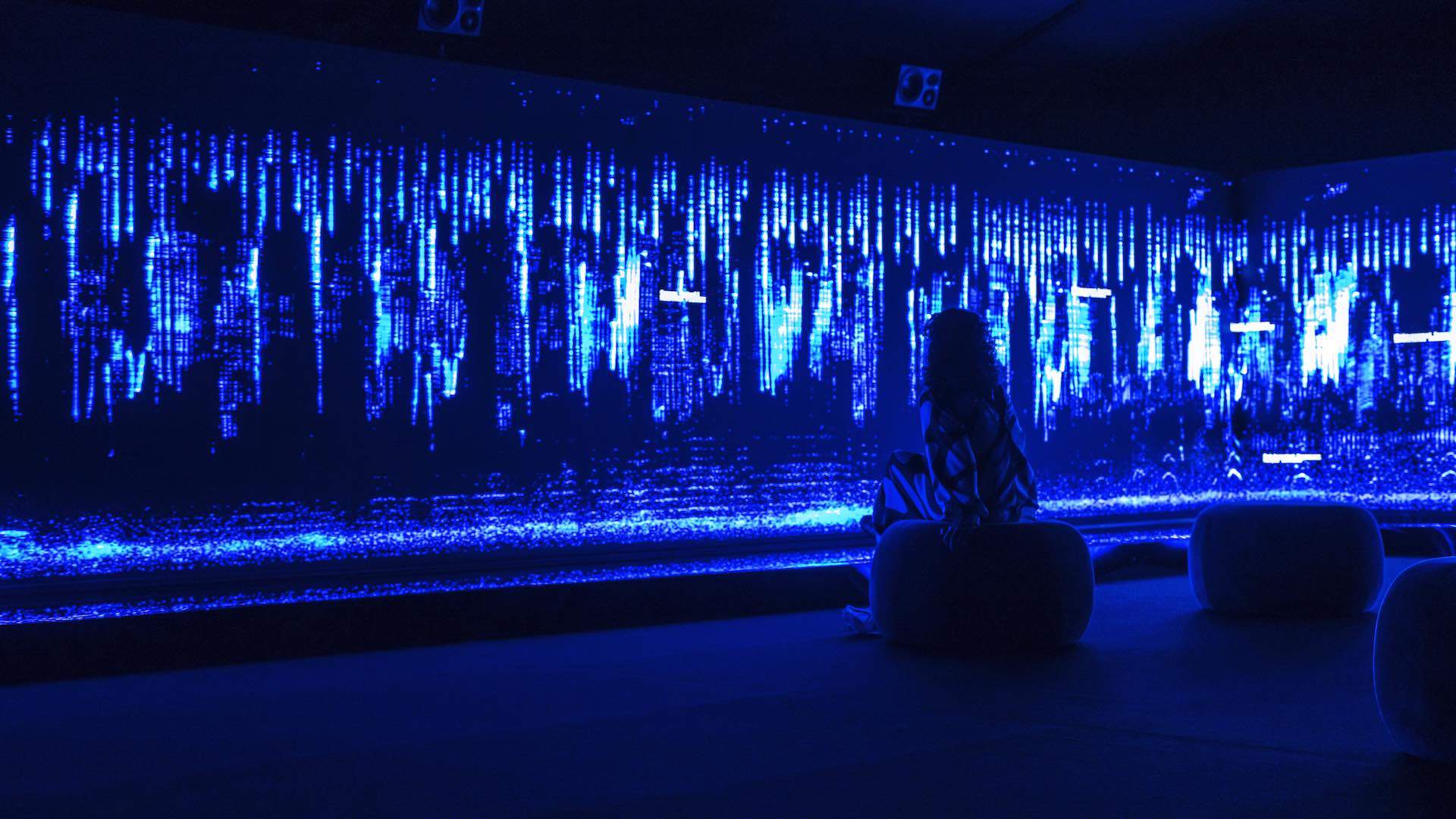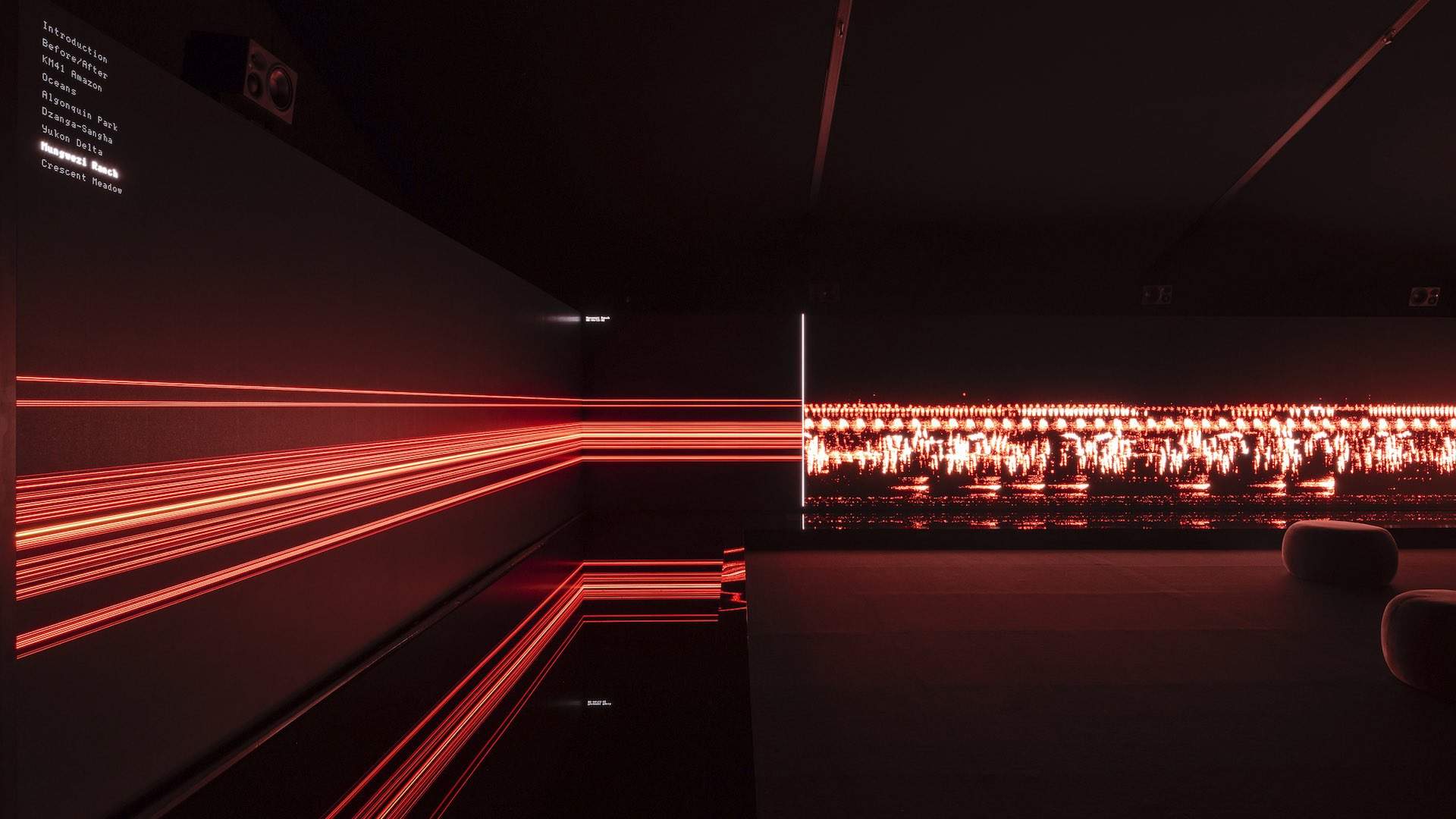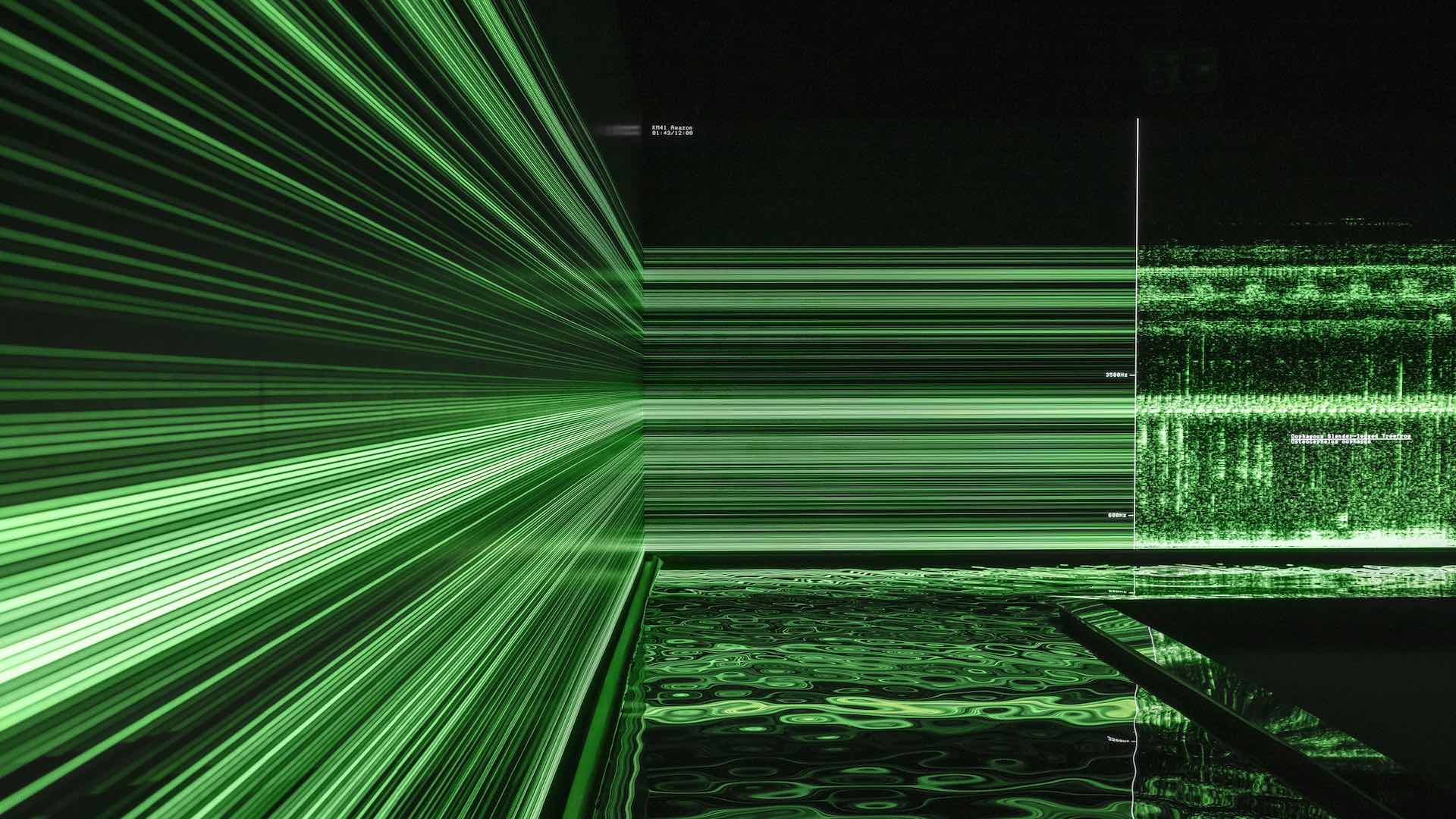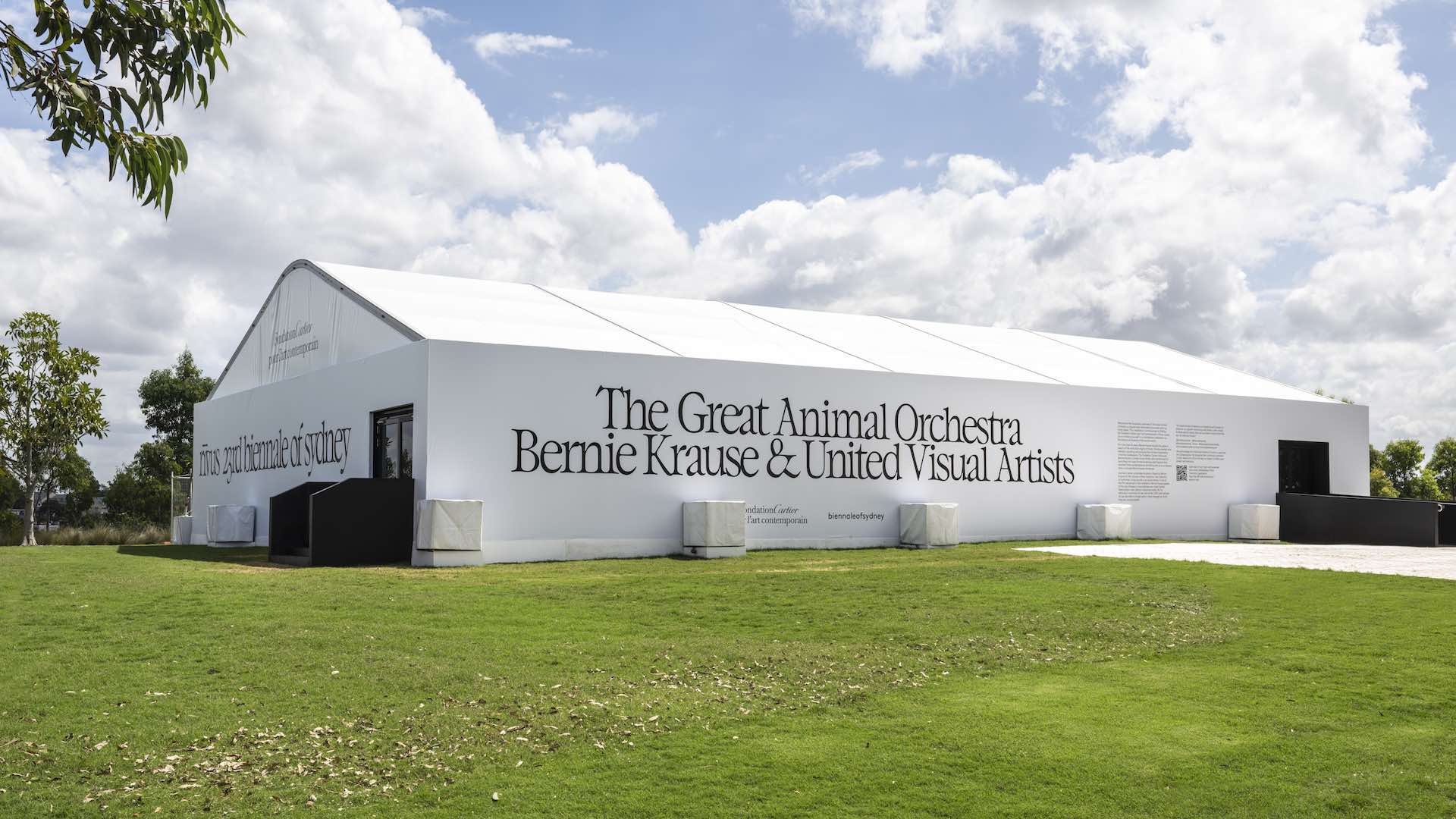This Biennale of Sydney Installation Is Bringing the Sounds of 15,000 Animal Species to Barangaroo
Called 'The Great Animal Orchestra', the free immersive artwork features sounds recorded in tropical grasslands, savannahs and Arctic tundra over the last 50 years.
In partnership with
Perhaps your dog's happy bark or cat's "feed me" meow regularly brightens up your day. Maybe when you're walking around Sydney, you pay extra attention to any chirping birds that you can hear. Whichever fits, you'll be able to listen to quite a few more animal sounds in Barangaroo during this year's Biennale of Sydney, with the three-month-long art event set to host the Australian premiere of The Great Animal Orchestra.
Some performances have spot-on names and this is one of them, with the immersive work by soundscape ecologist Bernie Krause and London-based collective United Visual Artists featuring noises from 15,000 animal species, all recorded by Krause in 1300 wild habitats over the past 50 years. Including sounds from tropical grasslands, savannahs and Arctic tundra, the piece is designed to take listeners on a rare journey into the natural world — and to get the audience not only appreciating the beauty and the intricacy of all of these non-human sounds, but to realise what could be lost as the planet changes.
Keeping your ears peeled is just one part of of The Great Animal Orchestra, however, with United Visual Artists pairing Krause's soundscape with vivid visualisations. The imagery draws upon each animal's contribution to the overall piece, including critters from vulnerable habitats in Africa, North America, the Pacific Ocean and the Amazonas.

Sydneysiders will be able to experience the results for free during the Biennale of Sydney, with The Great Animal Orchestra setting up at Barangaroo's Stargazer Lawn from Saturday, March 12–Monday, June 13 — but with timed and ticketed entry. Expect to have company; in its Paris season, the installation saw more than 200,000 people head along, while it has also proven popular everywhere from Shanghai, Seoul and London to Milan and Boston.
If you're wondering exactly what you're in for, Krause, who has a history of working with The Doors and on film scores such as Francis Ford Coppola's Apocalypse Now, explains that "this is the tuning of the great animal orchestra, the planet's deeply connected expression of natural sounds and rhythm. It is likely that the origins of every piece of music we enjoy and word we speak come, at some point, from this collective voice. When we lived closer to the natural world, we sang as part of that animal chorus. Now we have a disconnect, we are not quite as healthy, vibrant or aware of the world around us."
José Roca, Artistic Director of this year's 23rd Biennale of Sydney, described it as "stepping into a soundproofed black-box theatre whose walls spring to life with overlapping electrocardiograms, representing different species' sounds."

Originally commissioned by commissioned by Fondation Cartier pour l'art contemporain (Cartier Foundation for Contemporary Art), the installation will also include a shallow reflecting pool — "which translates the deepest sounds of the ocean," Roca notes — as well as cushions for sitting on while you take in the sensory experience.
The 2022 Biennale of Sydney will run across the same dates as The Great Animal Orchestra, popping up in venues including The Cutaway at Barangaroo Reserve, the Art Gallery of New South Wales, Circular Quay, Information + Cultural Exchange, Museum of Contemporary Art Australia, National Art School in partnership with Artspace, The Rocks and Walsh Bay Arts Precinct including Pier 2/3 across the city. This year's theme, Rīvus, means 'stream' in Latin — and yes, that pool and those ocean noises give this certain standout a H2O-centric skew, too.
The Great Animal Orchestra will run from Saturday, March 12–Monday, June 13 at Stargazer Lawn, Barangaroo — open from 10am–5pm daily, and also from 5–9pm on Wednesday evenings. Admission is free, but bookings are required. For further information or to register, head to the Biennale of Sydney website.
Images: Mark Pokorny







